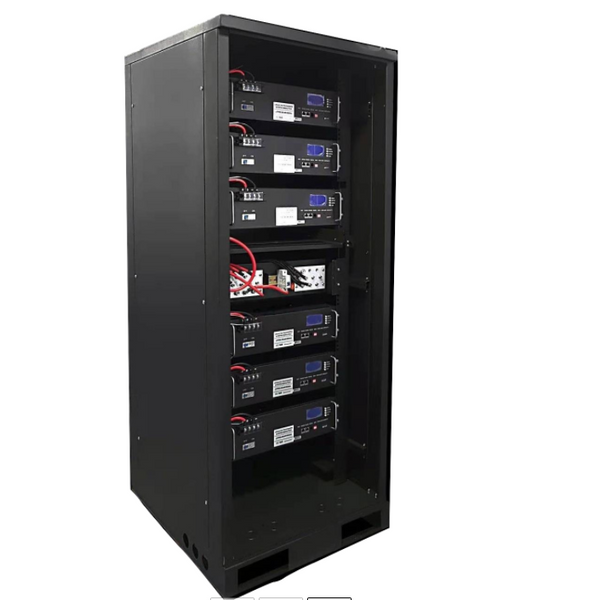What effect does low temperature have on lithium batteries?

⒈Lithium batteries are restricted to use in low temperature environments. Except for the severe deterioration of discharge capacity, lithium batteries cannot be charged at low temperatures.
⒉When charging at low temperature, the intercalation of lithium ions on the graphite electrode of the battery and the lithium plating reaction coexist and compete with each other. Under low temperature conditions, the diffusion of lithium ions in graphite is inhibited, and the conductivity of the electrolyte decreases, resulting in a decrease in the intercalation rate and the lithium plating reaction on the graphite surface is more likely to occur.
⒊The internal resistance of the battery increases obviously with the decrease of temperature. The lower the charge, the greater the internal resistance, and this trend also remains unchanged with the change of temperature. After the lithium battery reaches the negative electrode, the diffusion inside the negative electrode material also becomes unsmooth. Throughout the process, the movement of the charged ions has become difficult. From the outside, it is the internal resistance of the battery that has increased.
⒋The influence of low temperature on the charging and discharging efficiency of lithium battery. During the discharging process, a large amount of electric energy is consumed on the internal resistance to heat up. When an electric car is driving, you will feel that the battery life seems to be about the same, and the battery life becomes shorter at low temperatures.
Daily maintenance of lithium battery UPS power supply at low temperature:
●Lithium battery UPS power supply should be stored in a cool, dry and safe environment;
●If the lithium battery needs to be stored for a long time (more than one month), it is recommended to charge it to 40%-60%, and the storage time needs to recharge the battery for 1-2 hours per month;
●When not in use for a long time, the lithium battery should be taken out and placed in a cool and dry place. Do not freeze to avoid water vapor erosion;
●Operate strictly in accordance with the correct turn-on and turn-off sequence. Avoid large fluctuations in the voltage output of the lithium battery UPS power supply when the load is suddenly loaded or suddenly reduced, and the UPS power supply cannot work normally;
●It is forbidden to use with overload. The maximum starting load of the lithium battery UPS power supply is best controlled within 80%. If it is overloaded, it will often break down the inverter tube in the inverter state;
●For long-term storage of lithium battery UPS, the UPS should be turned on and charged every 3-6 months, otherwise the UPS host and battery will be damaged;
●The lithium battery must be charged within 24 hours after it is fully discharged, and the charging time shall not be less than 3 hours.
How to deal with the poor low temperature of lithium battery?
① Low temperature preheating technology
The countermeasure that technicians found is charging and preheating. Although it is a stopgap measure, it has obvious effects on improving the discharge capacity and long-term life of lithium batteries. Before charging or using the lithium battery in a low temperature environment, the battery must be preheated.
②Improve the low-temperature performance of lithium iron phosphate batteries from the four blocks of positive electrode, negative electrode, electro-hydraulic and binder
As for the positive electrode, it is now nano-sized, and its particle size, electrical resistance, and the axis length of the AB plane will affect the low-temperature characteristics of the entire battery. Lithium iron phosphate was prepared through three processes. From the perspective of our overall preparation conditions, different lithium iron phosphate processes are nanometerized and coated. From the perspective of the axial length of the AB surface, the increase in the axial length of the AB surface makes the lithium The ion migration channel will become larger, which will help improve the battery rate performance.
What are the advantages of lithium battery UPS power supply?
The service life is long. The energy storage power used by the lithium battery UPS is a lithium battery. Due to the low strain of the lithium battery, the structural damage caused by the back and forth expansion of the electrode material can be greatly reduced. The average working life is 10 to 15 years, while lead-acid batteries can only last 4 to 6 years.
High and low temperature adaptability is strong, can be used in the environment of -20℃-60℃, after the process treatment, it can be used in the environment of -45℃.
Green and environmental protection, regardless of production, use or scrap, it does not contain or produce any toxic and harmful heavy metal elements and substances such as lead, mercury, and cadmium.
Complete protection functions, with battery over-voltage protection, output over-voltage protection, output under-voltage alarm, output short-circuit, over-temperature protection and other protection functions

